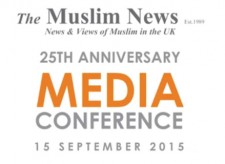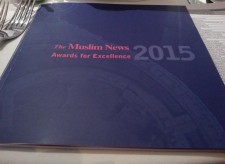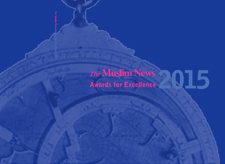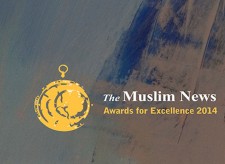Islam as imagined in eighteenth and nineteenth century English literature. By Clinton Bennett. Pages 182. New York. Routledge. 2023. HB, $134.
Since mediaeval times, English literature has often demonised Muslims. The term ‘Islamophobia’ is recent, but the phenomenon is old.
The book analyses representations of Islam in eighteenth and nineteenth-century English works of fiction, including poetry and plays. “The recent and contemporary tropes perpetuate much older images of Muslims, “although those depicted might be labelled as Arabs, Turks or Moors that can be traced back many centuries in English literature” (p2).
However, Clinton Bennett argues that alongside the predominance of negative tropes, some have challenged stereotypes and racist assumptions, as well as the “belief that non-Europeans were inferior or threatening.”
Bennett focuses on the eighteenth- and nineteenth-centuries because this was a period when much more was written about Islam and Muslims in English compared with earlier centuries. The survey of literature starts in 1700 and ends in 1914.
He writes about the treatment of Muslims living in the UK. William Quillium (d 1932) was “pelted with mud” outside his mosque in Liverpool, and later wrote to the King complaining about cartoons in the press that ridiculed Islam and the Ottoman Sultan. Some Christians even threatened to “burn him alive”. (p3)
The early references in European literature depicted Muslims as worshipping “Mahomet”, Islam was a false, perhaps Satanically inspired faith, a womaniser, that Muslims could threaten Europe’s security and Christianity’s survival.
In 1649, the first English version of the Qur’an appeared, based on Andre du Ryer’s 1647 translation of Arabic. The first direct translation of the Qur’an from Arabic into English was George Sale’s Koran (1734), by Edward Gibbon (d 1794).
Thomas Jafferson’s copy has been used at the swearing-in of Muslim members of Congress in the USA. Sale “rebutted many hostile tropes about Islam and offered a more positive evaluation.” (p7)
The alleged oppression of women, a tendency towards a despotic government, lawlessness and an association between Islam and violence “still feature in how literature, film and the media routinely depict Muslims.” (p166)
The first chapter deals with the sixteenth and seventeenth centuries and depicts how Turks (which denoted Muslims) were often depicted as enemies, womanisers and even as idol worshippers who could not be trusted.
However, Bennett, Christopher Marlowe and William Shakespeare, in their iconic Turk plays, broke ranks with the popular demonisation of Muslims by tending to represent them as human, rejecting the automatic assumption that Christians are good, and Muslims bad. (p167)
Chapter two looks at the new genre of pseudo-Oriental literature, written by Oriental visitors to Europe on what they observed around them and often compared this unfavourably with their own customs.
Chapter three discusses the literature that presents the Orient as dark and dangerous, or others resisting polarising as good Christians and bad Muslims.
The fourth chapter focuses on Islam as imagined by Romantic writers in the nineteenth century. They were hugely influenced by the Arabian Nights.
In Chapter five, the literature is written by those from outside the British Metropole who worked and lived in the Oriental spaces and whose views of the Orient and Islam differed from the dominant paradigm of the Orient and of Islam as inferior, potentially dangerous or as the antithesis of everything European because of their experiences living in the Orient for a substantial period.
Chapter six discusses several writers who lived in Britain, but whose limited identities gave them a different perspective from that which dominated London.
Their Jewish, Scottish or Irish identities and desire to preserve these convinced them that a nation could be home to different cultural traditions, while still commanding loyalty from all of them if civil rights, including freedom of cultural and religious expression, were protected.
The chapter discusses the differing views of Benjamin Disraeli and William Gladstone on Islam and the Ottoman Empire in the late nineteenth century, with Disraeli being more sympathetic to Islam and the Ottoman Empire.
Disraeli’s novels depicted Islam and Islamic civilisation sympathetically and wanted to encourage a Jewish-Christian-Islamic alliance. Gladstone wrote in 1878 that he thought Disraeli’s views resulted in policies that were harmful to British interests. (p151)
The book is important in that it surveys the literature on both negative and positive ideas about Islam in novels and plays.
Bennett highlights writers who challenged stereotypes and tended to see Muslims as equally capable of virtue and vice as Christians and others.
This is an excellent book on how stereotypes are formed, and perpetuated through history, and it gives a balanced account of differing views on Islam and the Muslim world through a vast array of literature.
Abdul Adil
















